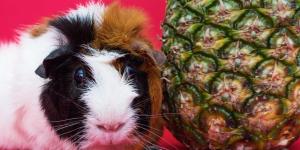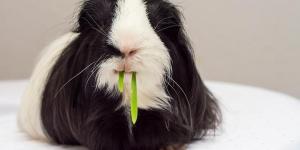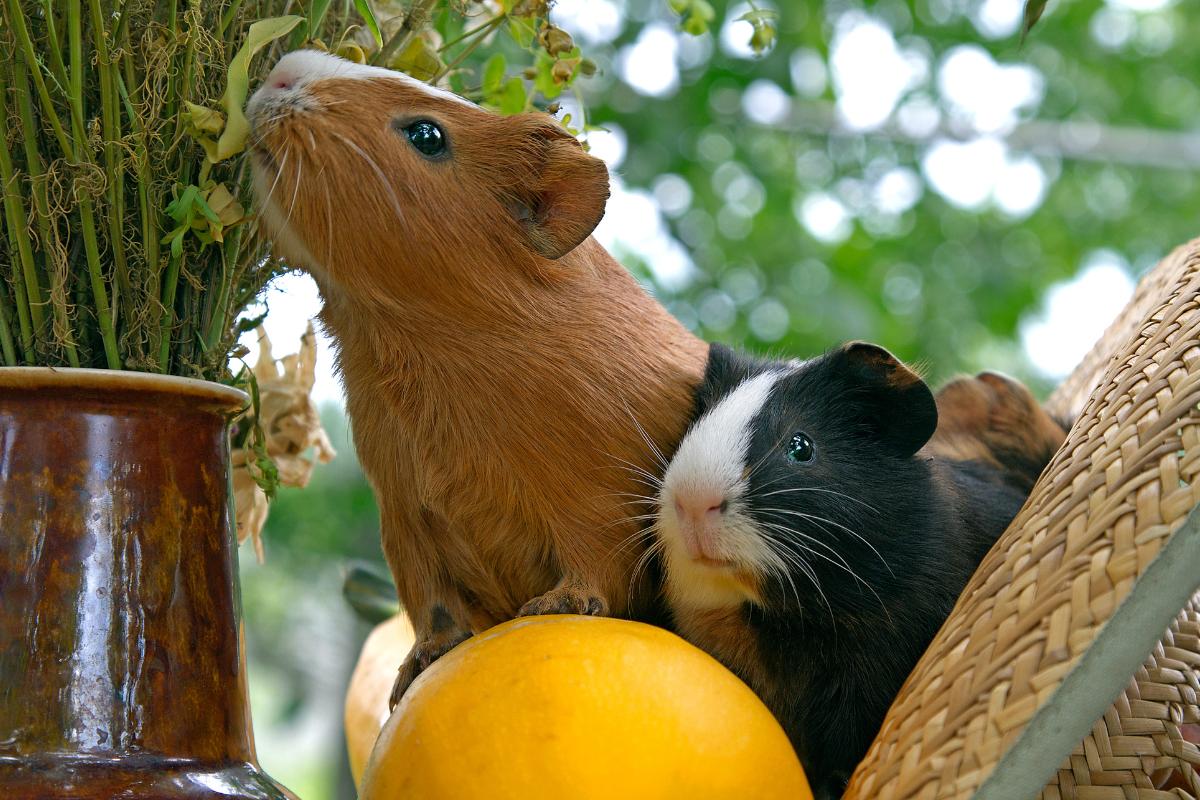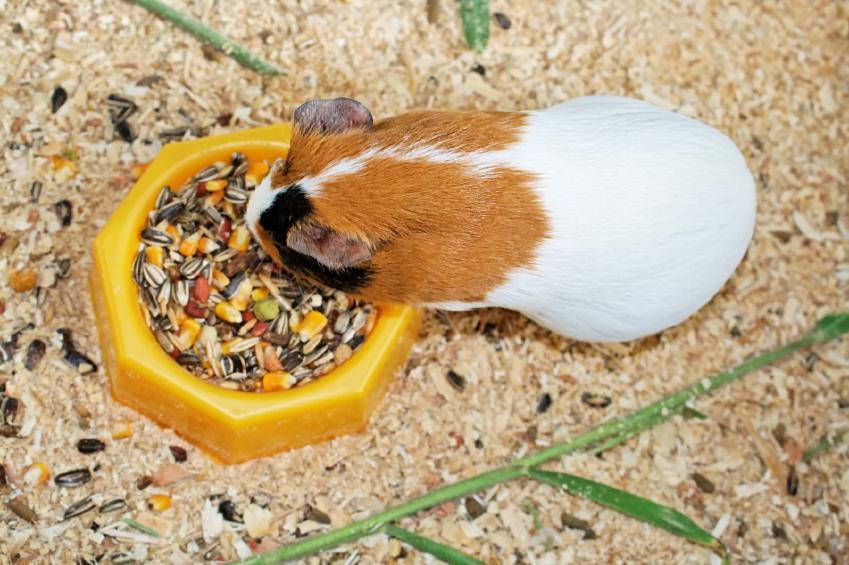Scurvy in Guinea pigs - Symptoms and Treatment

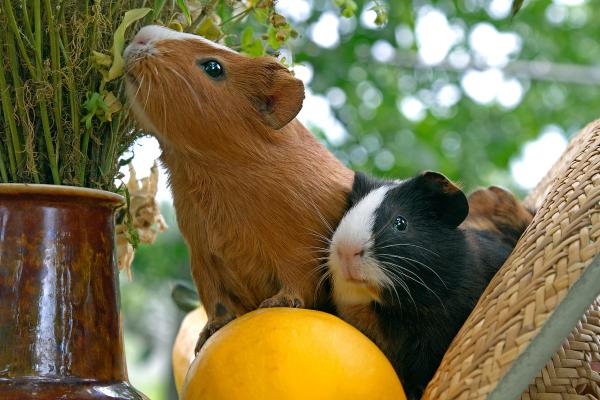
Scurvy in guinea pigs is a disease which occurs due to a lack of vitamin C. Guinea pigs cannot synthesize their own vitamin C, so they need to obtain it through diet. If they do not receive enough through feeding, they can develop a vitamin C deficiency. For this reason, scurvy and vitamin C deficiency in guinea pigs are considered the same. Guinea pigs are particularly sensitive to vitamin C deficiency. This makes it imperative that a guinea pig guardian knows the symptoms of scurvy in guinea pigs and what to expect in terms of treatment.
At AnimalWised, we discover everything you need to know about scurvy in guinea pigs. We look at the symptoms and treatment of vitamin C deficiency, as well as how you can prevent your pet from developing scurvy.
What is scurvy in guinea pigs?
Although used interchangeably, scurvy and vitamin C deficiency are not exactly the same thing. Specifically, scurvy is the disease which results when a guinea pig does not receive enough vitamin C. It is possible a guinea pig will not have enough vitamin C, but will not show any symptoms. Eventually, a deficiency of this vitamin will result in the disease scurvy which can be life threatening if prolonged.
Also known as ascorbic acid, vitamin C cannot be manufactured naturally by the cavy's body. Instead, they need to eat vitamin C in their diet to obtain it. This is usually in the form of food rich in vitamin C, but some guinea pigs may be particularly sensitive to vitamin C deficiency, meaning they may benefit from supplements.
Domestic guinea pigs are cared for by their guardians whose responsibility it is to meet their basic needs. A proper diet which covers their nutritional requirements is a fundamental need in this animal. For this reason, guinea pigs usually develop scurvy due to negligence on the part of their guardian.
Why do guinea pigs need vitamin C?
Vitamin C is a very important nutrient for guinea pigs. This is because it is essential for the creation of collagen. This is a structural protein which is needed to create and maintain various tissues in the body. This means vitamin C is responsible for the following:
- Skin: helps build skin as the animal is developing, but is also very important for maintenance throughout their lives. This is especially important if the cavy receives an injury and the skin needs to heal itself.
- Gums: guinea pigs eat a lot every day and need strong teeth to eat the large amount of roughage they require in their diet. If their gums are weak, it can affect their entire organism.
- Joints: vitamin C and collagen are very important in building and maintaining joints. This is especially important as the guinea pig ages. Older guinea pigs are particularly susceptible to joint problems which can significantly decrease their quality of life.
These are only some of the reasons why guinea pigs need vitamin C. It is suffice to say that it is an essential vitamin for guinea pigs and a deficiency leading to scurvy can be life threatening.
Learn more about the importance of vitamin C for guinea pigs in our related article.

Symptoms of scurvy in guinea pigs
Now we know the importance of vitamin C in guinea pigs, we can see that a deficiency can affect vital systems within the organism. This means the symptoms of scurvy in guinea pigs can be quite generalized. They include:
- Loss of appetite and weight loss
- Hypersalivation
- Respiratory diseases
- Milder and less effective immune response
- Ulcerative pododermatitis of the feet (bumblefoot)
- Bleeding and inflammation of the gums
- Dental weakness and tooth loss
- Internal bleeding (especially around joints)
- Delayed healing of wounds
- Skin darkening and flaking
- Poor coat condition and alopecia
- Weakness
- Decreased activity
- Joint stiffness and lameness
- Pain when handled
It must be taken into account that vitamin C deficiency can be a primary or secondary disorder. Primary scurvy occurs when there is not enough vitamin C in the diet. Secondary scurvy can occur when the guinea pig has a disease which prevents them from eating or synthesizing vitamin C. In these cases, we may see symptoms of the underlying health condition in addition to symptoms of scurvy.
In addition to scurvy, discover more about the most common diseases in guinea pigs.
Treatment of scurvy in guinea pigs
If we observe any of the aforementioned symptoms, we should go to our veterinarian immediately. As you can see from the scurvy in guinea pigs symptoms, some can be clinical signs of other diseases. For this reason, an accurate diagnosis must be made by a veterinary professional with experience in exotic animals.
Once the diagnosis of scurvy in guinea pigs has been made, the veterinarian will most likely prescribe vitamin C supplements. This will compensate for the deficiency, but can be done so in a controlled manner. This should be enough to cure the guinea pig of scurvy. If the scurvy is secondary to another disease, the vet will also administer the corresponding treatment for this health issue.
Once the scurvy has been treated, we will need to ensure our guinea pig has a suitable diet to meet their vitamin C needs. We will be able to discuss with the veterinarian our level of care and they can help implement a more suitable diet.
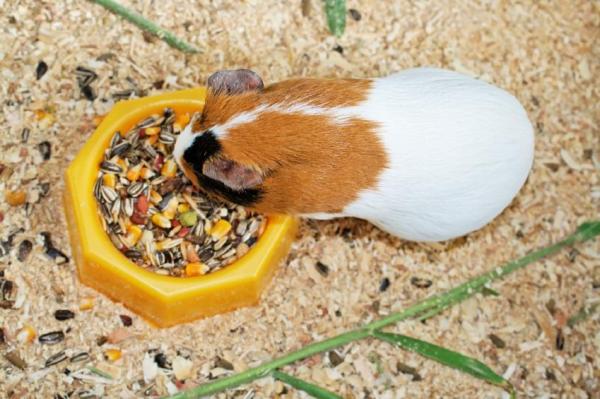
How to prevent scurvy in guinea pigs
Prevention of vitamin C deficiency in guinea pigs requires ensuring they have a diet which meets their nutritional needs. However, not all guinea pigs will have the same nutritional requirements. These will change according to various factors, including age, overall health, levels of immunity and their reproductive status.
For example, the necessary intake of ascorbic acid for pregnant guinea pigs triples during their pregnancy. Unfortunately, the effects of vitamin C are relatively short, so they will need additional feeding to ensure their needs are met. It will also degrade in its environment. This means diluting it in water will only work for a short space of time before it will be rendered ineffective.
For the average guinea pig, the daily needs of this vitamin are estimated at about 10 mg per kg of the guinea pig's weight. This will rise to to 30 mg per kg if the guinea pig is pregnant. It must also be taken into account that an excess of vitamin C can cause diarrhea in guinea pigs.
To avoid scurvy in guinea pigs we must prevent vitamin C deficiency by giving our guinea pig an adequate diet. The diet that is recommended for an adult guinea pig consists of the following:
- Hay: should constitute practically the entire daily feed, between 70-80%. Alfalfa is recommended only in the case of pregnant females because their calcium requirements increase. In a guinea pig that is not pregnant, this amount of calcium can end up being deposited in the form of stones. Learn more about how to care for a pregnant guinea pig in our related article.
- Feed: must also have hay as its main ingredient. The date of manufacture if very important in guinea pig feed. Since vitamin C degrades over time, the product needs to be relatively fresh if it has been enriched in vitamin C. This should make up approximately 20% of their daily diet.
- Vegetables: especially those rich in vitamin C, such as spinach, parsley (not indicated for pregnant guinea pigs), cabbage, endive or beets. These should constitute approximately 5% of their diet.
- Fruits and cereals: only for occasional consumption, as a treat or reward reward. Although fruit is rich in vitamin C, too much natural sugar will be counterproductive to their health. Learn more with our article on fruit and vegetables recommended for guinea pigs.
- Vitamin C supplement: we should only provide these types of supplements for guinea pigs after consultation with our veterinarian.

This article is purely informative. AnimalWised does not have the authority to prescribe any veterinary treatment or create a diagnosis. We invite you to take your pet to the veterinarian if they are suffering from any condition or pain.
If you want to read similar articles to Scurvy in Guinea pigs - Symptoms and Treatment, we recommend you visit our Other health problems category.


